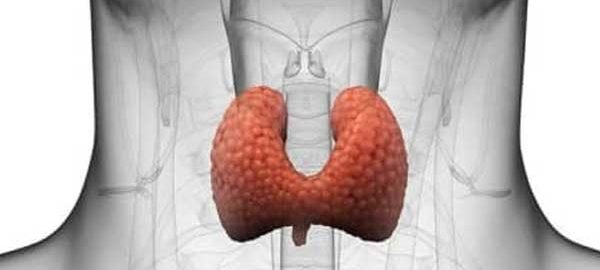Various pathologies and lifestyle can condition the appearance of erectile dysfunction. Knowing and valuing them is key to improving the quality of life of those affected
That prostate pathologies determine the appearance of erectile dysfunction is a clear fact, but the pathophysiological mechanism is not well understood. Many patients suffering from prostate problems (benign hyperplasia, prostate cancer) may be older and, therefore, the incidence of both conditions increases.
BPH has a side effect due to the treatments used, especially 5alpha reductase inhibitors, which are directly implicated in a possible decrease in libido and, to a lesser extent, worsening of the quality of erections, due to a decreased levels of dehydrotestosterone (active metabolite of testosterone (DHT)).
Regarding Peyronie’s disease, it is considered that the pathophysiological mechanism of erectile dysfunction is an alteration of the normal structure of the penis, preventing the veno-occlusive mechanism from working correctly and causing it due to venous leak. However, when vascular studies of the penis are performed, more varied findings are found. It is common, for example, for patients suffering from Peyronie’s disease to previously present pathologies that predispose to the development of erectile dysfunction due to lack of arterial supply.
When considering surgical treatment, it is important to assess the degree of erectile dysfunction that the patient has, since the success or failure of the intervention will largely depend on this assessment.
Priapism
After ischemic priapism (intense erection, prolonged for more than 4 hours), there is a lack of oxygen supply to the corpora cavernosa, causing an inflammatory process and possible fibrosis of the same, resulting in a very difficult erectile dysfunction. treatment.
In ischemic priapisms refractory to treatment, the early placement of an early penile prosthesis has been postulated to treat the consequent erectile dysfunction that will occur and the priapism definitively, with successful results.
A very particular case is recurrent priapism, which can be treated with phosphodiesterase 5 inhibitors (drugs used for erectile dysfunction), given that they seem to favor the correct flow of red blood cells through the vessels.
Kidney failure and dialysis are two situations in which widespread vascular damage occurs, leading to a situation of erectile dysfunction due to lack of vascular supply. In addition, in many cases kidney failure coexists with diabetes which, like dialysis, can cause erectile dysfunction of neurogenic origin. These cases of erectile dysfunction have a poor response to the usual treatments.
Cardiovascular risk
Any cardiovascular risk factor is a risk factor for erectile dysfunction. Thus, diabetes, hypercholesterolemia, … can cause it. In fact, in patients who present erectile dysfunction, it is necessary to screen for coronary pathology. The diameter of the penile arteries is slightly less than that of the coronary arteries. For this reason, when erectile dysfunction appears, it is known that the next ones to be obstructed are the coronary arteries, putting the patient’s life at risk.
Regarding high blood pressure, it should be noted that after diabetes it is the most important factor responsible for erectile dysfunction, not so much because of hypertension itself, but because of the treatments used, such as beta-blockers or thiazide diuretics, which can produce problems in erectile function due to its intrinsic mechanism of action.
Lifestyle modifications to improve cardiovascular risk factors help improve sexual function.
Hypogonadism is a direct cause of erectile dysfunction. In these cases, substitution with exogenous testosterone serves to relieve not only erectile dysfunction but also the rest of the symptoms caused, as well as to restore its serum levels and avoid complications derived from its long-term deficit.
Consumption of toxic substances
The consumption of any type of narcotic alters the erectile function. Cannabinoids are associated with hypogonadism, which can secondarily cause erectile dysfunction. Other drugs, such as cocaine, are powerful vascoconstrictors that can cause, with continued use, erectile dysfunction due to lack of vascular supply. It is very common for young patients, accustomed to sex with drugs (“chem-sex”), to counteract the effects of cocaine with other vasodilator drugs in order to maintain a sexual relationship.
As for alcohol, while moderate amounts have always been considered heart-healthy, its excessive consumption can lead to peripheral nerve degeneration that leads to the appearance of neurogenic-type erectile dysfunction, which is difficult to treat with the most conservative therapies.
Alterations in the CNS
For their part, patients with spinal cord injury, multiple sclerosis, sequelae of acute cerebrovascular accidents may have altered regulation at the CNS level, which favors the appearance of erectile dysfunction of neurological origin; that is, the sexual stimulus is not transmitted and an erection does not occur.
However, reflex erections may appear. In these cases, treatment should be based on PGE, initially intraurethral. In the event that it is secondary to ACVA, it may have an added vascular factor as the origin of the ED.
Both depression as a pathological entity and its treatment have been identified as independent risk factors for erectile dysfunction. In addition, a state of depression or anxiety favors a lack of libido and anticipatory anxiety, favoring the development of erectile dysfunction of psychogenic origin, in addition to medication, as well as other sexual disorders such as premature ejaculation.
Treatments with 5PDE or PGE inhibitors are usually effective, but the depressive picture must be managed, since it is essential for the patient to have a satisfactory sexual activity.










